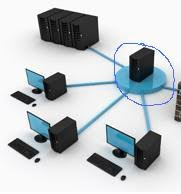There is a point in every family when it’s time for the talk. No, not that talk. Not that one either. I’m talking about the science-and-math talk. The kind of talk that should happen every time your child is having trouble or even just working on homework. Most parents, having been through primary school themselves at some point, have a difficult time with this talk. In fact, according to a recent survey conducted through the Intel Corporation, parents are more comfortable talking with their kids about drugs than about science and math.
Some key points from the survey:
* More than half (53 percent) of parents of teenagers admit that they have trouble helping their children with math and science homework.
* Nearly a quarter of parents (23 percent) who admit to being less involved in their child’s math and science education than they would like say their own lack of knowledge in these subjects is a key barrier.
* Another 26 percent of parents who are less involved than they would like wish there were a one-stop shop with materials to refresh their existing, but unused math and science knowledge so they can better help their kids.
Talking about drugs is easier for parents because it’s a vague subject. It doesn’t have much depth to it. You can get the message across in just a couple of short sentences, or an example of someones’ life gone wrong thanks to the influence of drugs. Not to mention, it’s a talk that almost every competent parent has with their child at some point in their lives, right up there with the good ol’ sex talk.
Science and math are not vague subjects. Not only is there extreme depth to be found, but there is commonly a generational gap between the parent and the child. Science and math haven’t changed, but the amount of knowledge and the understanding has. We know more as adults than when we were children, but we have to relate to them on a child’s level, rather than on an adult-level understanding of the material. This is where it becomes difficult for parents. Shelly Esque, vice president of Intel’s corporate-affairs group, explains the challenge:
Our survey points to a difficult reality for our nation’s parents: While they may recognize the importance of math and science, they are unable to engage with their children around these subjects due to limited understanding of the topics and scarcity of resources to help. We need to help parents help their kids make the best choices, including taking math and science courses so they are prepared to succeed.
Even though 98 percent of parents believe that science and math are critical to the future of the country, and 91 percent believe that parental involvement is key to their children’s success, parents are still having trouble talking to their children about science and math. Sure, it’s easy to express the importance of the subjects, but when it comes down to actually doing something — that is where we’re lacking. Even I have trouble helping with math and science sometimes. Not because I’m not knowledgeable, but because it’s hard to transfer my knowledge to that of an 8-year-old.
The problem is, parents recognize that math and science are critical to their child’s future success, but they also realize that speaking to their children about drugs and alcohol is critical to their child’s survival. Especially when it comes to talking to teenagers, it’s hard enough just saying hello to them, much less trying to connect with them on their schoolwork. So the drug talk is always easier.
What parents need, and — as the survey data mentioned above shows — they know they need. is help. Normally I’d say that it’s all up to the parents, and they should work on the effectiveness without outside intervention.
However, when a company like Intel is willing to step up and put in the time and resources to come up with solutions to assist parents in connecting with their children on math and science, I’ll make an exception. Through its initiatives it’s looking to bridge the gap and create tools that parents can use to better understand what their children are working on and what they can do to help. Shelly Esque again:
Over the past decades, Intel has worked extensively with teachers, students, communities and governments to help inspire and prepare the next generation of innovators with a solid math and science education. We haven’t, though, worked with parents, who we think are a critical piece of the education equation. Our goal in releasing the results of this survey is to raise awareness among parents that they aren’t alone in their challenges so they feel more confident seeking out assistance to encourage their kids to take an interest in math and science, and we hope resource providers will come forward to help them.
Parents, take note. When a company like Intel is stepping in to provide a means to assist you in bridging the educational gap with your children, take full advantage. To that point, if you have the resources to help, feel free to do so. While it’s important that your kids grow up drug-free and healthy, it’s just as important that they grow up educated as well. You can almost guarantee that the less you focus on their education, the more you are going to be focusing on the drug talks.
To learn more about the Intel Education Initiative, visit www.intel.com/education. To join Intel’s community for change in global education, visit www.inspiredbyeducation.com.
Subscribe to:
Post Comments (Atom)

No comments:
Post a Comment